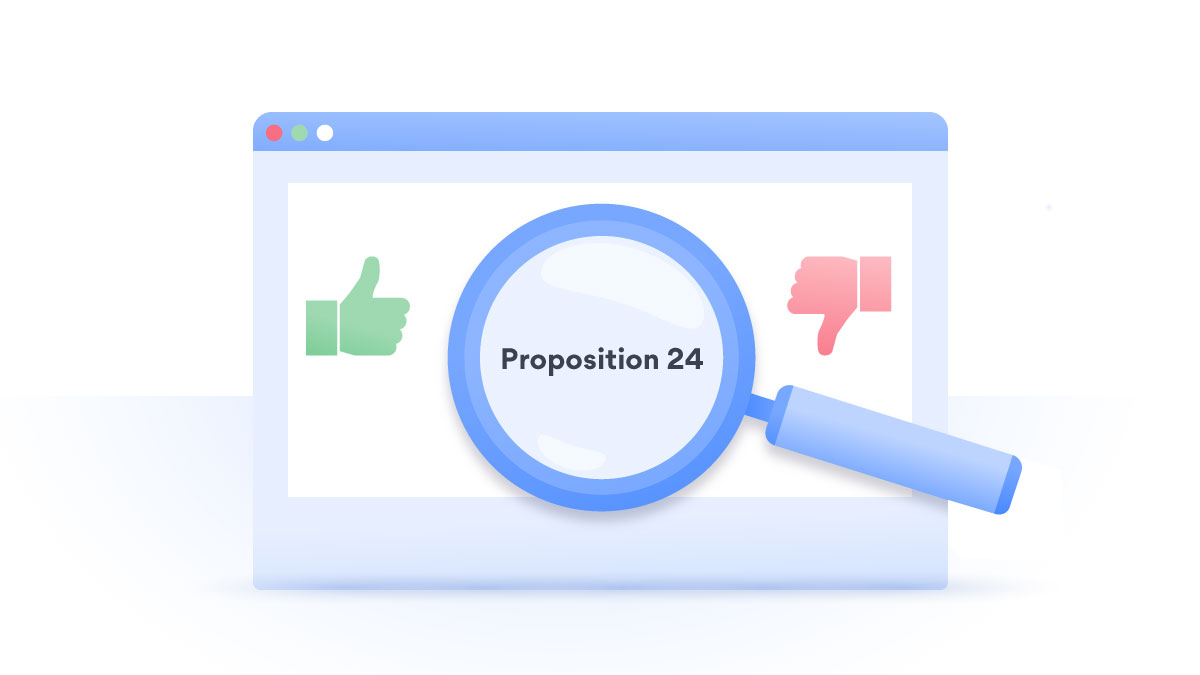Will Proposition 24 help or hurt your privacy?
When California passes a privacy law, the world listens. Home to tech giants like Facebook and Google, the state is also large and wealthy enough for many of its laws to hold for the rest of the US and even the world. So when Proposition 24, or the California Privacy Rights Act, was proposed, it sprouted heated discussions between privacy advocates and, well, privacy advocates. What makes Proposition 24 so controversial?

What is Proposition 24?
In 2018, the California Consumer Privacy Act (CCPA) was signed into law. It came into effect on January 1, 2020, and empowered California’s consumers to take their privacy back. However, it was soon followed by Proposition 24, also known as the California Privacy Rights Act.
Proposition 24 is meant to strengthen the CCPA by giving more power to the consumers while also allowing businesses to continue to provide affordable, high-quality products and services. But it’s a complicated text written in vague language that leaves Californian voters confused. Let’s take a closer look.
Proposition 24 pros
- Proposition 24 would establish a California Privacy Protection Agency to enforce privacy laws and impose fines on the businesses that break them. Currently, the State Attorney General’s office is responsible for this, but it doesn’t have enough resources to enforce and implement the law thoroughly. On average, only two customer privacy violation cases are dealt with each year. The new agency would protect California’s consumers’ privacy more efficiently. Furthermore, the authors of Proposition 24 claim that the agency would be self-sufficient – the fines and settlements it would collect from businesses would keep it running.
- It adds new consumer privacy rights to the ones listed in CCPA. Businesses wouldn’t be able to freely use sensitive personal information (race, ethnicity, precise location, religion, genetic data, sexual orientation, private communications, and specified health information). They wouldn’t be allowed to share it and would be forced to correct inaccurate information when asked.
- It establishes stricter rules when dealing with minors’ data. Businesses would have to ask for permission before collecting any data about people under the age of 16. If the agency finds any violations concerning minors, the fines are tripled.
- Businesses would face immediate consequences if caught breaking the law. Currently, they have 30 days to remedy the situation and can avoid penalties for their negligence.
- Proposition 24 would align CCPA with the EU’s GDPR. It would be easier for businesses to comply with the new rules if they already adhere to EU regulations and vice versa.
Proposition 24 cons
- Proposition 24 would allow businesses to charge fees for users who do not agree to pay for the service with their personal data. They could demand a direct payment or simply downgrade their services for those customers. For example, a streaming platform could slow down your connection speed, and you would have to pay more to get the same quality service as other people who have agreed to surrender their data.
- The Privacy Protection Agency would cost taxpayers $10 million every year. Critics say the claim that it would pay for itself is little more than speculation.
- With Proposition 24, people wouldn’t have a default “don’t share my data” privacy setting, which they have now under CCPA. Consumers would have to opt out of giving businesses their data instead of opting in to provide it. And they would have to do this with every individual service.
- The new regulations would only cover certain operations of larger companies and would reduce the number of businesses that must adhere to these regulations by half. Currently, businesses that have 50,000 clients per year have to meet the law’s requirements. Proposition 24 would change that number to 100,000. Secondly, it would actually weaken some restrictions that are currently in effect. It includes exceptions for vehicle ownership information, job application forms, credit standing, student’s data from education agencies, and emergency contact information.
- There wouldn’t be any individual lawsuits. The California Privacy Protection Agency would enforce the law, making it easier to find businesses that don’t stick to the rules. However, individual and class-action lawsuits would be impossible. This means that the agency’s budget and interests might impact and/or limit the enforcement of the law.
So is Proposition 24 good or bad?
The basic idea behind it is indisputable. The CCPA needs a follow-up to fix all the loopholes and keep lobbyists at bay. However, Prop24 is not the best solution possible. It closes some loopholes while opening others. It leaves too much room for interpretation and law-bending, just like CCPA. California – and the whole US, for that matter – needs a thorough new privacy law that would clearly define consumer privacy regulations. Proposition 24 doesn’t look like it’s up for the job.
Businesses and government agencies aren’t the only ones who must look after people’s data. You need to take care of your private information. Need help? Read our comprehensive guide on how to protect your personal data online.
Want to read more like this?
Get the latest news and tips from NordVPN
